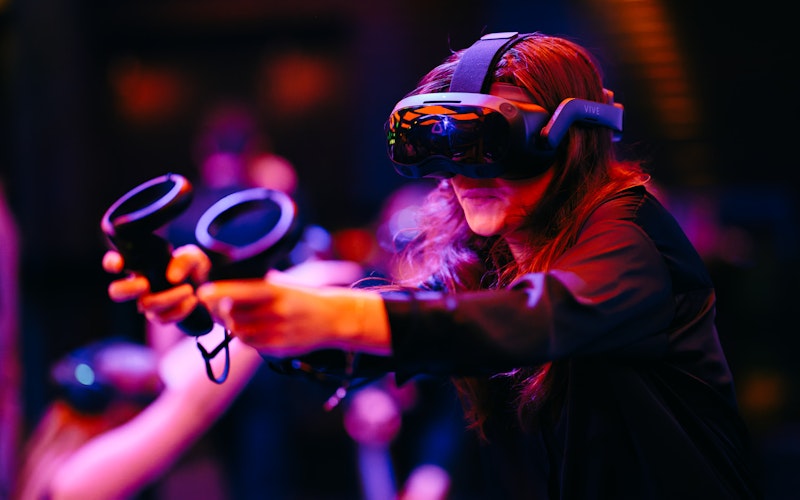There was a time—not that long ago, actually—when VR felt like something you'd only see in a sci-fi film. Big headset, low-res graphics, someone waving their arms around in a demo booth. Pretty cool, but let’s be honest… most people didn’t take it seriously.
Fast forward to now? Whole different story.
VR’s showing up in places nobody expected a few years ago. We’re talking real-world uses: schools, hospitals, companies, even defense teams. It's not just flashy gaming gear anymore. It’s showing up where work happens, where learning happens, where care happens.
And yeah, it’s growing. Fast. Last year, the industry sat somewhere around 16 billion. This year, it’s already climbed higher. And a few folks are throwing around numbers like 120 billion by the 2030s. Is that aggressive? Sure. But looking at the pace? Not unrealistic.
So What Makes VR Worth Paying Attention To?
Here’s what it does differently: it puts you in the middle of the thing.
You’re not watching a video about something. You’re standing inside it. You’re walking around in it. You react to it, and it reacts back. That level of immersion? You just don’t get that from screens or slides or lectures.
And in a world full of noise—notifications, pop-ups, distractions on distractions—VR grabs your focus and holds it. That’s rare.
It’s Way Past Gaming Now
Gaming got VR off the ground, no doubt. But that was the launchpad, not the destination.
Now you’ve got museums letting people walk through historical reconstructions. Hospitals are using it to help patients with recovery or pain management. Teachers are ditching static lessons and letting students explore 3D environments instead—imagine walking through the bloodstream instead of just reading about it.
And businesses? They're using VR to train employees—especially in jobs where real-world mistakes are risky or expensive.
This shift isn’t just anecdotal. There’s actual investment behind it. Education’s expected to throw around 13 billion toward VR this year alone. Healthcare’s not far behind. Last figure I saw was somewhere close to 30 billion by 2026. People are betting big on this because they’re starting to use it.
The Tech Finally Feels Ready
Let’s be real: early VR gear? Heavy, clunky, awkward. It worked—sort of—but not in a way you’d want to rely on every day.
That’s changed.
Headsets are lighter, they’re wireless, they’re not nearly as expensive as they used to be. The visuals? Sharp. Motion? Smooth. And the software? Way smarter than even two years ago.
Even more important, the content’s caught up. Before, you had impressive hardware but not much worth experiencing. Now, it’s the opposite—there’s actual purpose behind what’s being built.
And companies? A lot of them don’t want to build VR systems from the ground up. They’re leaning into plug-and-play solutions that get the job done. Services that work out of the box. That market alone could hit 15 billion by next year. That’s not niche anymore.
And It’s Getting Smarter By the Day
Here’s where things get wild. VR isn’t operating solo anymore. It’s syncing with AI, facial recognition, and touch-based feedback.
So instead of just seeing and hearing things, you’re starting to feel them. And these environments? They’re reacting to you. Not your clicks—you.
Imagine a training module that slows down when you hesitate. Or a therapy session that adjusts based on the tone of your voice. This isn’t sci-fi. This is what’s being built right now.
Why It Matters
VR isn’t hype anymore. It’s not just cool—it’s useful.
It’s a serious tool for training, learning, storytelling, simulation, and experience design. And it’s finally getting to the point where teams—educators, clinicians, business leaders—can actually use it without needing a PhD in tech.
So if you’re waiting for a “perfect moment” to try it? You missed it. That moment already happened. The good news? You’re still early enough to lead with it.
So, What Now?
Whether you're teaching students, onboarding new hires, supporting patients, or running a team—this is your chance to level up how you connect and communicate.
You don’t have to build a whole VR platform from scratch. You just need the right tools, and maybe the right people to help get you going.
And that’s exactly what we’re here for.




